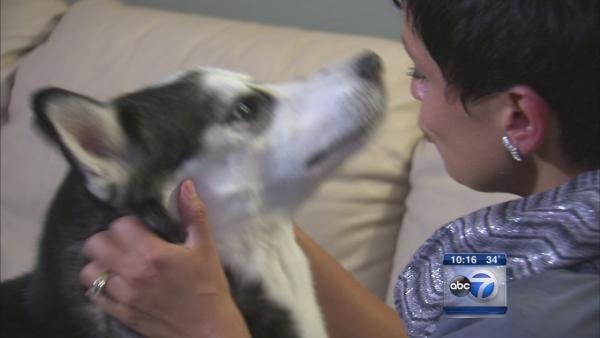Blacklisted dog breeds at center of homeowners insurance dilemma
Thursday, November 07, 2013
November 7, 2013 (CHICAGO) (WLS) --
The ABC 7 I-Team unleashes findings on an insurance trend that has dog
owners howling mad. They're presented an ultimatum: choose between a
beloved pet dog or insuring their home.
These huskies have no history of biting, but some insurance companies see nothing but teeth. While shopping around for a better homeowners rate, Melissa Ashley of Winfield, Ind., was shocked to learn her dogs had been red-flagged.
"I was mad. I was like, 'Is this a joke?' I said, 'Are you kidding me?' and he said, 'No, I'm sorry ma'am, but we can't cover you,'" said Melissa Ashley, dog owner.
Some companies have been excluding breeds for years. Ashley says her pets were never an issue before. She tells the I-Team two companies refused coverage; several others would give her a policy, but it would cost nearly double what she was now paying. Turns out her huskies are on an insurance "blacklist" of dog breeds considered aggressive and dangerous.
"It is upsetting to me to think that we could possibly be at risk to lose insurance," said Ashley.
She is not alone. Some families are being told to either lose the dog or lose insurance. Others are
having trouble getting coverage at all. Dog owners are learning it's not just the so-called "bully breeds" showing up on these lists.
An I-Team check of insurance companies finds blacklisted pets can include: chows, huskies, malamutes, akitas and great Danes. How the blacklists are compiled varies from company to company.
"It's kinda like insuring a burning building, you are not going to insure a burning building," said Loretta Worters, VP, Insurance Information Institute.
The industry claims dog bites cost insurance businesses an arm and a leg. Recently released data from the Insurance Information Institute, which represents more than 300 companies, reveals dog bites accounted for more than one-third of all homeowner liability claims paid out in 2012-- costing insurance companies nearly $490 million last year.
"This is all concrete information we are getting, numbers that show the losses and you can't dispute the numbers, it is what it is," said Worters. "Each company is different on how they are going to treat this."
Animal advocates insist it's the "bite" not the breed to fear, meaning a dog's own temperament is what's important.
The I-Team contacted ten well-known insurance companies doing business in the Midwest. Two companies admit declining homeowners coverage if the family pet is among the blacklisted breeds. The others told us they don't exclude dogs based on breed.
For example, American Family Insurance does not insure homes with certain dog breeds, saying its policy helps keeps rates affordable for all of its customers. State Farm does not refuse insurance based on breed. Instead, the company looks at the bite history of the actual dog to determine risk.
Animal shelters are now warning would-be adopters to beware.
"I've started bringing up insurance to because it's a little more out there. . .We don't want people surprised and go home and be like, 'Wait a minute, I can't have this dog because of insurance?'" said Chris Stirn, director of operations, A.D.O.P.T.
The Ashleys decided to stick with State Farm for coverage.
So you don't get caught off guard, shop around. Policies vary widely by company, state and city. Read the fine print: see if a policy excludes or limits bite claims. If so, a separate umbrella policy can provide the liability coverage lacking in your homeowners insurance. Other concerns or complaints can be directed at your state's department of insurance.
Additional information:
Insurance Information Institute
Illinois Department of Insurance
To File a complaint: http://insurance.illinois.gov/Home/ComplaintLinks.asp Illinois Insurance Association Hot Line at 800-444-3338 to see if the proper number of days notice was given for cancellation, or to find an insurance company who will insure them.
Indiana Department of Insurance (IDOI): www.in.gov/idoi
To File a complaint: http://www.in.gov/idoi/2552.htm
State of Wisconsin Office of the Commissioner of Insurance: www.oci.wi.gov
To File a complaint: https://ociaccess.oci.wi.gov/complaints-public/
American Veterinary Medicine Association: https://www.avma.org
https://www.avma.org/public/Pages/Why-Breed-Specific-Legislation-is-not-the-Answer.aspx
https://www.avma.org/KB/Resources/Backgrounders/Pages/The-Role-of-Breed-in-Dog-Bite-Risk-and-Prevention.aspx
https://www.avma.org/public/Pages/Dog-Bite-Prevention.aspx
(Copyright ©2013 WLS-TV/DT. All Rights Reserved.)


 They were able to place the dog brothers in the same home.
They were able to place the dog brothers in the same home.